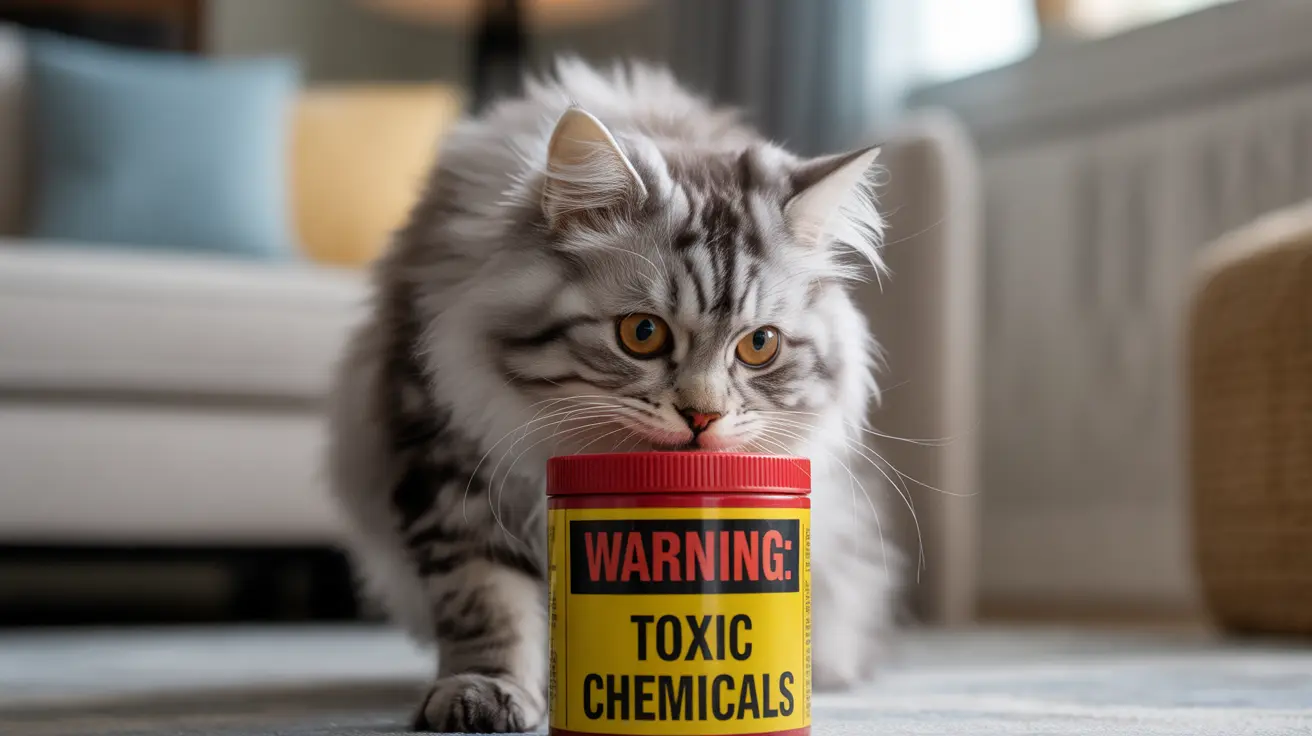Arsenic poisoning in cats is a life-threatening emergency that requires immediate veterinary attention. When cats are exposed to arsenic through various environmental sources or toxic substances, the consequences can be severe and potentially fatal. Understanding the signs, getting prompt treatment, and knowing how to prevent exposure are crucial for every cat owner.
This comprehensive guide will explore everything you need to know about arsenic poisoning in cats, from identifying early warning signs to implementing effective prevention strategies that can help keep your feline companion safe.
Recognizing the Signs of Arsenic Poisoning
The symptoms of arsenic poisoning typically appear within hours of exposure and can affect multiple body systems. Early recognition of these signs is crucial for successful treatment:
Immediate Symptoms
- Severe vomiting and diarrhea (may contain blood)
- Excessive drooling
- Intense abdominal pain
- Weakness and lethargy
- Cold extremities
- Rapid, irregular heartbeat
Advanced Symptoms
- Cardiovascular collapse
- Neurological issues (staggering, seizures)
- Loss of consciousness
- Severe dehydration
- Difficulty breathing
Common Sources of Arsenic Exposure
Cats can encounter arsenic through various sources in their environment:
- Pesticides and herbicides
- Treated wood products
- Some medication overdoses
- Industrial contaminants
- Contaminated soil or water
- Certain consumer products
Diagnosis and Emergency Response
When arsenic poisoning is suspected, veterinarians follow a comprehensive diagnostic approach:
- Detailed medical history review
- Physical examination
- Blood tests and urinalysis
- Toxicology screening
- Assessment of organ function
Treatment Protocol
Treatment for arsenic poisoning in cats must be swift and aggressive to maximize chances of survival:
Immediate Interventions
- Decontamination procedures
- Induced vomiting (if recent exposure)
- Gastric lavage
- Administration of activated charcoal
Ongoing Treatment
- Chelation therapy
- Intensive fluid therapy
- Supportive care
- Monitoring of vital signs
- Management of secondary complications
Prevention and Safety Measures
Protecting your cat from arsenic exposure requires vigilance and preventive measures:
- Store all chemicals securely
- Use pet-safe alternatives for pest control
- Research lawn and garden products carefully
- Keep cats indoors when treating outdoor areas
- Maintain emergency contact information
- Regular veterinary check-ups
Recovery and Long-term Outlook
The prognosis for cats with arsenic poisoning varies depending on exposure severity and treatment timing. Recovery can take anywhere from days to weeks, and some cats may require ongoing monitoring of organ function.
Frequently Asked Questions
What are the common symptoms of arsenic poisoning in cats, and how quickly do they appear?
Symptoms typically appear within 1-24 hours of exposure and include severe vomiting, diarrhea, weakness, and cardiovascular problems. The faster symptoms appear, the more serious the poisoning likely is.
How is arsenic poisoning in cats typically diagnosed, and what information should I provide to my veterinarian?
Diagnosis involves blood tests, urinalysis, and toxicology screening. Provide information about potential exposure sources, timing, and any observed symptoms. If possible, bring the suspected toxic substance to the clinic.
What are the most effective treatments for arsenic poisoning in cats, and how can I support my pet during recovery?
The most effective treatments include chelation therapy, fluid therapy, and supportive care. Support your pet by following veterinary instructions, maintaining a quiet recovery environment, and attending all follow-up appointments.
How can I prevent my cat from getting arsenic poisoning, and what are some safe alternatives to arsenic-containing products?
Prevent poisoning by using pet-safe products, storing chemicals securely, and keeping cats away from treated areas. Consider natural pest control methods and non-toxic cleaning products as alternatives.
What is the prognosis for cats with arsenic poisoning, and how long does recovery typically take?
Prognosis depends on exposure severity and treatment timing. With prompt treatment, many cats recover within days to weeks. However, severe cases may have lasting complications or poor outcomes if treatment is delayed.
If you suspect your cat has been exposed to arsenic, don't wait - seek immediate veterinary care. Quick action can mean the difference between life and death in cases of arsenic poisoning.






